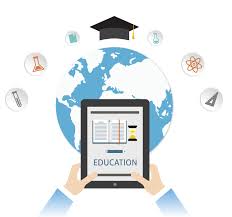
The Importance of Education Resources
Educational resources play a crucial role in shaping the learning experiences of students around the world. These resources encompass a wide range of materials, tools, and strategies that are designed to support and enhance the educational process.
One of the key benefits of education resources is their ability to cater to diverse learning styles and preferences. By providing students with access to a variety of resources, educators can create a more engaging and personalized learning environment that meets the needs of individual learners.
Education resources also help to bridge the gap between theoretical knowledge and practical application. By incorporating real-world examples, case studies, and interactive activities into their teaching materials, educators can help students develop critical thinking skills and apply their learning in meaningful ways.
Furthermore, education resources can empower students to take ownership of their learning journey. By giving students the tools and resources they need to explore topics independently, educators can foster a sense of curiosity, self-motivation, and lifelong learning.
In today’s digital age, technology has revolutionized the way education resources are accessed and utilized. Online platforms, digital libraries, interactive simulations, and multimedia content have made learning more interactive, dynamic, and accessible than ever before.
Overall, education resources are essential for creating engaging, effective, and inclusive learning environments that empower students to reach their full potential. By investing in high-quality education resources, we can ensure that every student has the opportunity to receive a quality education that prepares them for success in an ever-changing world.
Understanding Educational Resources: Definitions, Examples, and Their Importance in Schools
- What is a learning resource in school?
- What is the meaning of educational resources?
- What is an example of an open educational resource?
- Why are resources important in education?
What is a learning resource in school?
A learning resource in school refers to any material, tool, or source of information that is used to support teaching and enhance the learning experience of students. These resources can include textbooks, digital resources, educational software, manipulatives, multimedia materials, and more. Learning resources are designed to provide students with additional information, practice opportunities, and different perspectives on a subject to help them grasp concepts more effectively. By utilizing a variety of learning resources in the classroom, educators can cater to diverse learning styles and engage students in a more interactive and meaningful way, ultimately enriching their educational experience.
What is the meaning of educational resources?
Educational resources refer to a wide range of materials, tools, and strategies that are used to support and enhance the learning process. These resources can include textbooks, online articles, videos, interactive simulations, teaching aids, and more. The primary purpose of educational resources is to provide educators and students with the necessary tools to facilitate learning, improve comprehension, and promote critical thinking skills. By utilizing various educational resources, educators can create engaging and dynamic learning experiences that cater to diverse learning styles and preferences, ultimately helping students achieve academic success and acquire valuable knowledge and skills.
What is an example of an open educational resource?
An example of an open educational resource is Khan Academy, a non-profit organization that provides free online educational materials and resources for learners of all ages. Khan Academy offers a wide range of subjects, including math, science, history, and computer programming, through video lessons, practice exercises, and interactive quizzes. These resources are openly accessible to anyone with an internet connection, making it a valuable tool for students, teachers, and self-learners seeking high-quality educational content at no cost.
Why are resources important in education?
Resources are crucial in education because they provide the necessary tools, materials, and support to enhance the learning experience for students. By having access to a variety of resources, educators can cater to diverse learning styles, reinforce key concepts, and create engaging and interactive lessons. Resources also help bridge the gap between theory and practice, enabling students to apply their knowledge in real-world scenarios. Additionally, resources empower students to take ownership of their learning journey and explore topics independently. Overall, resources play a vital role in creating effective and inclusive learning environments that foster student success and achievement.
